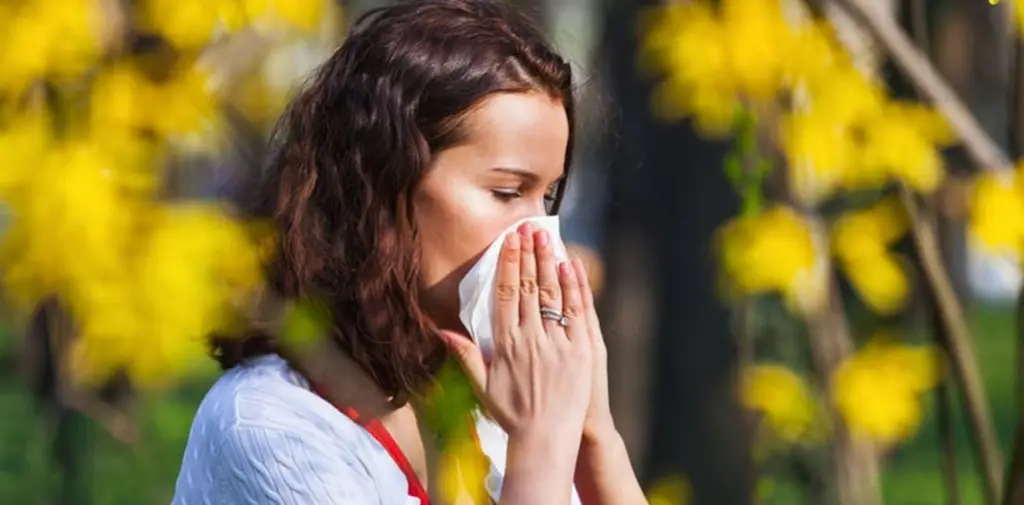This blog contains information and guidance about Seasonal Allergies. It starts with the definition of Allergy with examples. It also explains what are Allergens with example. Then it introduces what are Seasonal Allergies. It also contains Causes of Seasonal Allergies. Then it mentions the Symptoms of these Allergies. In the end, it explains the diagnosis and also Treatment of Seasonal Allergies. This blog contains Causes, Symptoms, and Treatment of Seasonal Allergies.
What is Allergy?
Allergy occurs when a person’s immune system react to substances present in the environment. The allergies are caused by specific allergens from which the person is sensitive and feels irritant. Allergies may be severe or minor. But they are irritable and painful at every stage. People feel very uncomfortable and feel pain and irritation during allergy attack.
Example of Allergy:
Dust Allergy, Pollen Allergy, Nuts Allergy, Skin Allergy etc.
What are Allergens?
Any substance that can cause allergy in a person is called as allergens. Allergens can vary from person to person according to their sensitivity and also weaknesses. If you are allergic to something, so your immune system will recognize its presence in your environment as foreign or dangerous and cause irritation or uncomfortable feelings. Then our immune system gives you symptoms and starts to fight from that allergy internally and in some time the symptoms are gone as the allergen is gone from the environment.
Example of Allergens:
Milk, eggs, nuts, wheat, soybeans, mustard etc.
What are Seasonal Allergies?
Seasonal allergies are also called “Hay Fever” or seasonal allergic rhinitis. These allergy symptoms may occur during certain time of the year, usually when trees, grasses and weeds release tiny pollen particles into the air to fertilize other plants.
In this condition, the immune system of the people are allergic to pollens and treat them as invaders and harmful foreign substances so in its response they release chemical including “histamine” in the bloodstream. This release cause the symptoms of the seasonal allergy to occur.

Causes of Seasonal Allergy:
Seasonal allergies causes by presence of any foreign substance usually pollens that the immune system does not support. When they are in the environment they cause allergy and are very painful. Seasonal allergy is cause of a certain period of time and it vanishes after that period of time is gone.
Symptoms of Seasonal Allergy:
Following are some of the symptoms of Seasonal Allergy:
- Sneezing
- Itchy Nose
- Nasal congestion
- Clear, runny nose
- Postnasal Drip
- Itchy watery eyes
- Asthma
- Irritability
- Mood swings
- Scratchy Throat
- Irritation in Ears
- Coughing and Wheezing
Every person gets the allergy symptoms according to their sensitivity and so vulnerability to seasonal allergy. The symptoms can be worst if it is left untreated.
Diagnosis of Seasonal Allergy:
The diagnosis of seasonal allergy is very important because it can become worst if taken for granted. The diagnosis of seasonal allergy is possible by two ways:
Blood Test:
Blood test will help you find the chemicals in the blood released when the immune system reacts to any allergens. This will identify the allergy existence in a person.
Allergy Skin Test:
In this test, the health professional put a drop of liquid containing allergen by making a scratch or prick on the skin. This test is on a person’s forearm or back so after 15 min a red bump occurs and it will indicate the presence of allergy in the patient.
These tests will help to diagnose the existence of allergy in a person.
Treatment of Seasonal Allergy:
The main part of treating allergies is knowing that with what allergen a patient is allergic to. The treatment of seasonal allergies depends upon how severe are the symptoms so you can instantly stop allergy by taking the allergens away from the allergic person. Or you can try to be isolated in the season of pollens to get away from seasonal allergy. For kids, it is necessary to change clothes and wash hands after playing outside. Anti-Allergy medicines is for the severe symptoms and also instant relief. The best way to control symptoms is to take proper rest.
Sleep heals the allergy and give time to the body to fight from allergens. Immunotherapy is a good way to treat seasonal allergy. This treatment helps you to activate your immune system for fighting with the allergy or disease. With all of this, we can treat Seasonal Allergies according to their extent and also the severity.

Seasonal Allergies
To learn about more topics, click the links below:
Comments